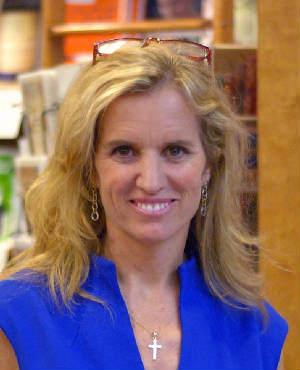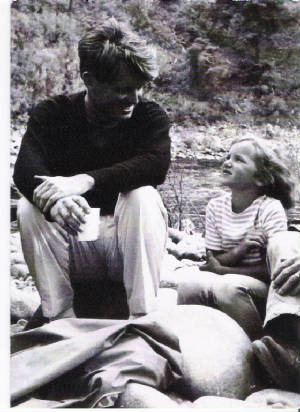|
|
Kerry Kennedy calls David Rapaport It was a great honor to have the opportunity to speak to Kerry Kennedy on Tuesday, April 9, 2013. Click on the link
above to hear the audio. During our brief interview, we were able to touch on several issues, including gun violence, civil rights, and the role she played in a particular moment in time that completely changed the lives of millions of people.
The interview began with commentary on the great courage it took Ms. Kennedy to simply speak out on the many issues she embraces but particularly on the issue of gun violence because of the enormous personal loss she and her family faced when her father was killed in 1968.
She generously offered tactics to advocate reducing gun violence.
There was discussion of the school shooting in Connecticut, which seemingly changed the tone of the gun violence debate, because previous opponents to any form of discussion of the problem of gun violence seemed to agree, "Enough is enough." However Kennedy responded to a question by saying that it seems a political calculation has been made to change this momentum. And behind it, one finds the NRA , and Tea Party Republicans.
Could it be we were backing away from an historic opportunity for reflection?
A quote was read regdarding Robert Kennedy's fight for civil rights "because it's the right thing to do." Parallels were drawn between then and now. Ms. Kennedy ventured that as long as the House of Representatives was being controlled in its current obstructionist manner, no meaningful legislation regarding gun violence at all would be advanced, nor would the Senate escape a filibuster. When a question was posed about Conservative Democrats also being somewhat responsible for hesitancy, the question was phrased in a way to evoke the memory of George Wallace in reverse in other words this time he was standing in the gunsmith's and sporting goods doorway admitting all who wish to enter. Ms. Kennedy quickly re-positioned the question to focus on the Tea Party and the NRA andchose to emphasize the culpability of those groups instead of Democrats. Wallace's name arose because in early June of 1963 Kerry Kennedy
(as a three year old) had a role to play in a confrontation between Georgia's Governor and her father, Robert Kennedy, who was
at the time the Attorney General of the United States, and was enforcing a Federal Court order to desegregate the University
of Alabama, the last state university holding out against integration. On the very day of the showdown at the school, here was her
father, with the weight of the world on his shoulders and the responsibilities facing Kerry's uncle, the President of the
United States John Kennedy, and, with Assistant Attorney General Nicholas Katzenbach in Montgomery on the phone working out
the details of how the confrontation involving the students' admittance would be handled, and with a film crew there on top
of it, Kerry happened to visit her father at work that day and ambled up to him...She spoke dearly about the aftermath in the form of a note written to her
by her father. She recounted her role in the conversation having seen the film by Robert Drew ("Crisis") many times,
as she put it , "Hi Nick!" "Hi Kerry." "Do you know what the temperature is here? Tell your father we want hardship pay."
The elasticity of Kerry's father was something that many people wished to emulate. People wanted to be like him, to
be able to be concerned with important issues, and protecting these students, protecting the principles of our country, and
yet able to show a father's love as he did when he paused to hand the phone to Kerry so she could talk to her friend Nick
Katzenbach. He would later remark that this was a real tension relief. For at least one person in the room, it was remarked that
that was a transformational moment as a human being. For many, it was Robert Kennedy who provided John Kennedy with the rationale,
the vision, and the political will to speak and make a presidential commitment to civil rights as he encouraged the president
to make a speech, and what a speech it was in June of 1963. The Finding Sources website contains a 2009 interview with
Congressman Lewis, a leader in nonviolent social change, and my students, prior to Kerry Kennedy's interview, read remarks
from her book "Speak Truth To Power." It is clear Ms. Kennedy chose her heroes wisely. She spoke to the qualities
that she sees in Congressman Lewis that we could all benefit from possessing or demonstrating. She told a deeply personal
story of seeing Congressman Lewis just 30 days prior to this interview and was generous in sharing it. That link can
be found on the left masthead. Kerry Kennedy: activist, mother, citizen, representative of justice, and possessor of a legacy
of leadership on nonviolent activism and social change.
Below is a link to the RFK Center. The above video interview with Kerry Kennedy is from the program Democracy Now. Below you will find a link to President Kennedy's entire speech (in print and video) given shortly after
students Vivian Malone and James Hood were admitted to Alabama. The speech would not have been given without the will and
advice of Robert F. Kennedy. This video and print copy is made possible courtesy of the Miller Center from the University
of Virginia. http://millercenter.org/president/speeches/detail/3375 .
Audio from the interview conducted on April 9, 2013 is available at the top of this page.
|
||||||||||||||||||||||||


